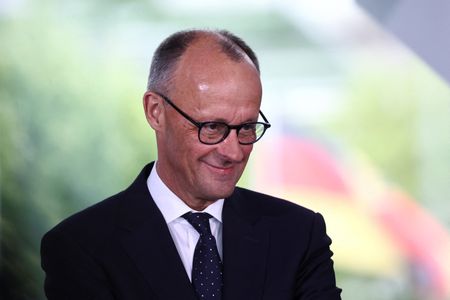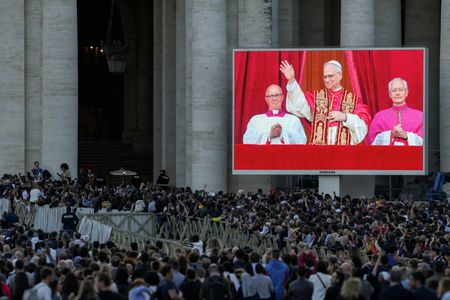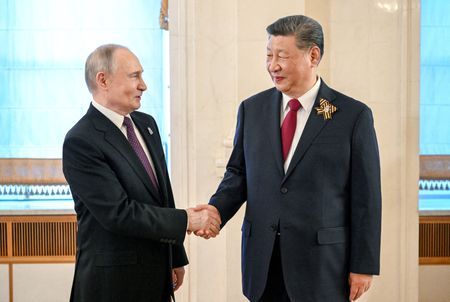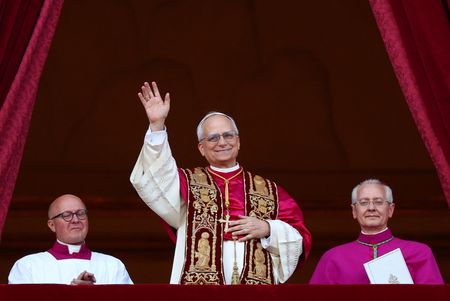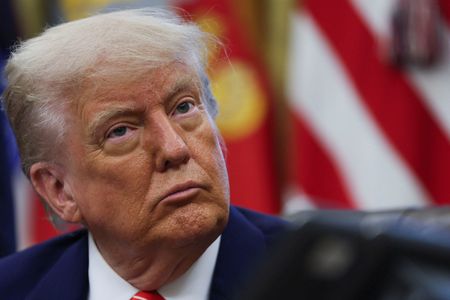By Sarah Marsh
BERLIN (Reuters) -Germany’s new chancellor, Friedrich Merz, and U.S. President Donald Trump agreed on the need to quickly resolve trade disputes in their first phone call since Merz took office earlier this week, a German government spokesperson said.
Trump congratulated Merz on taking office, the spokesperson said, while Merz assured him that “80 years after the end of the Second World War, the United States remains an indispensable friend and partner of Germany.”
The two leaders also agreed on the need to closely cooperate with the aim of ending the war in Ukraine, the spokesperson said.
Merz has adopted a markedly critical tone of the Trump administration since his conservatives won the federal election in February.
On the night of the election he warned that Europe needed to become independent of the United States given the Trump administration’s apparent indifference to its fate.
The transatlanticist, who for 10 years led an association aimed at promoting German-U.S. understanding, also criticised the “ultimately outrageous” comments flowing from Washington during the campaign, comparing them to hostile interventions from Russia.
He urged the administration earlier this week to stay out of domestic German politics after U.S. Secretary of State Marco Rubio criticized the German domestic intelligence agency’s decision to brand far-right party the Alternative for Germany “extremist”.
Merz has also been critical of Trump’s widespread imposition of tariffs that are particularly damaging to Germany’s export-oriented economy, calling instead for the complete abolition of tariffs between the European Union and the United States.
German President Frank-Walter Steinmeier accused the United States on Thursday of a “betrayal of values.”
“It is nothing less than a double epochal rupture — Russia’s war of aggression, and America’s betrayal of values — it marks the end of the long 20th century,” he said in a speech to parliament.
Russia, he argued, is endangering the peaceful order that was built after the end of World War II and the Allied victory over Nazi Germany.
“But the fact that it is now of all countries the United States — which played a decisive role in shaping that order — that is turning away from it, is a shock of an entirely new magnitude,” he added.
(Reporting by Sarah Marsh; Editing by Leslie Adler and Alistair Bell)

